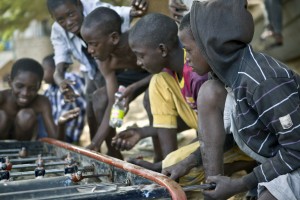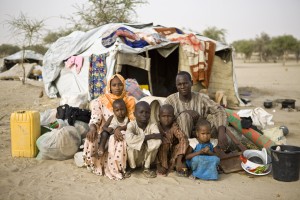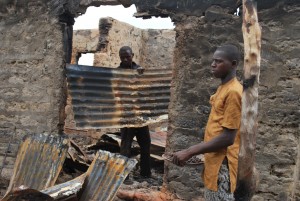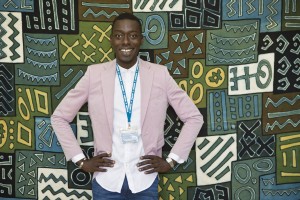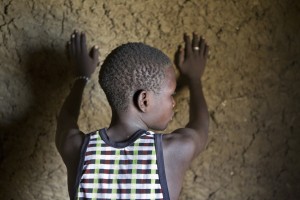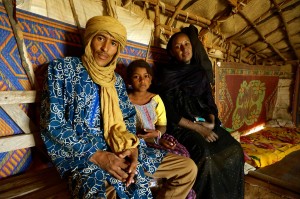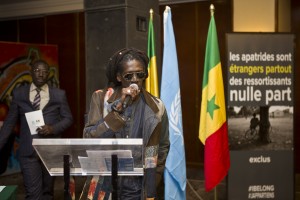Governments agree on actions to enhance protection for persons affected by the crisis in the Lake Chad Basin
“Protection challenges are surmountable if we can provide the building blocks for solutions”
ABUJA, NIGERIA, 8 June 2016 (UNHCR) – Governments of Nigeria, Cameroon, Chad and Niger agreed today, during a regional forum, for strong actions to provide better protection and assistance to populations of the Lake Chad Basin, in particular to refugees and internally displaced persons (IDPs). The Regional Protection Dialogue was held in Abuja from 6 to 8 June. It brought together over 100 participants; government officials, – including at ministerial level – from the Lake Chad Basin as well as high-level representatives of international and regional organisations, donor governments, and civil society.
Over 2.7 million persons have been displaced in the region in the past three years due to the Boko Haram insurgency, including over 2.4 million IDPs – 2.1 million of whom in Nigeria alone – as well as 155,000 refugees to neighbouring countries. “The people of the Lake Chad region face problems of existential proportions. Loss of lives, livelihoods, manultrition”, said the Vice-President of Nigeria, Professor Yemi Osinbajo, adding that the Boko Haram violence has exacerbated the suffering of people living in an area with already extremely limited ressources.
The Governments, with the support of partners, committed to take concrete steps to address key protection risks faced by the affected populations, such as measures to ensure the civilian and humanitarian character of hosting areas, and continued access to asylum, including respect for the principle of non-refoulement. “I have no doubt in my mind that the Protection Dialogue will serve as a forum to explore opportunities to strengthen regional collaboration and mobilize international support for the actualisation of its objectives” declared Nigeria Minister of Interior, Abdulrahman Dambazau.
The Governments noted that the crisis has seriously impacted most vulnerable civilians, and agreed to strengthen the identification and response to persons with specific needs, such as women and children at risk. Around 60 % of the affected populations are children, and some 20,000 children are estimated to have been separated from their families in north-eastern Nigeria.
“Protection challenges are surmountable if we can provide the building blocks for solutions” said Volker Turk, UNHCR Assistant High Commissioner for Protection, in his opening remarks at the Regional Protection Dialogue. “Sustainable solutions for displaced populations in the Lake Chad Basin will depend on creating the conditions needed for safe, voluntary, and dignified return to home areas or local settlement elsewhere”
It was agreed to enhance collaboration with development actors to better support IDPs and refugees to rebuild their lives either in host communities or back in their places of origin. In light of the significant number of people in the Lake Chad Basin who lack documentation and proof of nationality, which puts them at heightened risk of statelessness, Governments agreed to several actions to address this gap, including increasing the number of centers for birth registrations.
Partners who participated in the Dialogue reiterated in the Action Statement their continued support to the Governments in ensuring the protection of the civilian populations – refugees, IDPs, and local communities – who are the first victims of this crisis.
The Action Statement will serve as a basis for the development of national plans of action and includes provisions for follow up.
Contacts:
Hélène Caux (regional), caux@unhcr.org, Tel roaming: + 221 77 333 1291
Hanson Tamfu in Abuja, tamfu@unhcr.org, Tel: +234 809 035 9400; +234 902 757 3068
Leo Dobbs in Geneva, dobbs@unhcr.org, Tel: + 41 79 833 6347


